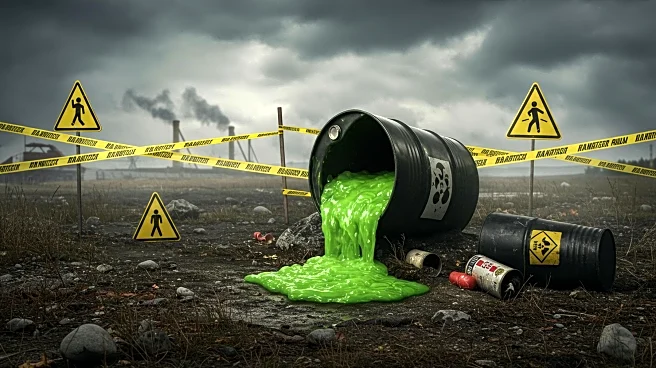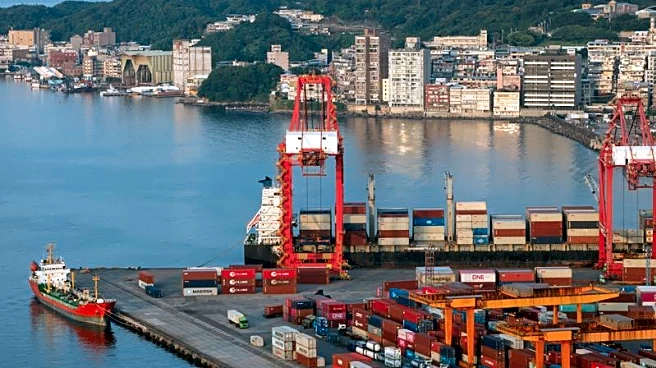What is the story about?
What's Happening?
The Arnolds Field landfill in Rainham, East London, has become notorious for its recurring fires, which release noxious smoke into nearby neighborhoods. Known locally as the 'Rainham volcano,' the landfill ignites every summer, causing significant air pollution. Originally a gravel quarry, the site was used as a landfill from 1967 and has been plagued by illegal dumping. In 2023, hazardous materials such as lead, benzo(a)pyrene, and asbestos were discovered at the site. Despite these findings, linking the landfill's contents to health impacts on residents has been challenging. Local authorities have limited power to enforce a cleanup, and the landowner cites bureaucratic hurdles and high costs as barriers to addressing the issue.
Why It's Important?
The situation at Arnolds Field highlights the broader issue of waste management and environmental justice, particularly in low-income communities. The recurring fires pose health risks to residents, exacerbating conditions like COPD and potentially leading to long-term health issues. The lack of accountability and action from authorities underscores systemic challenges in managing environmental hazards. This case reflects a common pattern where marginalized communities bear the brunt of environmental neglect, raising questions about equity and the effectiveness of current regulatory frameworks.
What's Next?
Residents and local campaign groups are pushing for Arnolds Field to be designated as 'contaminated' land, which would compel authorities to take action. A recent court ruling found that the local council had not adequately considered the health impacts of the landfill's smoke, prompting a review of the decision. The outcome could set a precedent for how similar cases are handled across the UK. Meanwhile, the landowner's plans to clean up the site remain stalled due to financial and bureaucratic challenges.
Beyond the Headlines
The Arnolds Field case raises ethical questions about the responsibility of landowners and government bodies in managing environmental hazards. It also highlights the need for more robust policies to prevent illegal dumping and ensure that waste management practices do not disproportionately affect vulnerable communities. As climate change leads to more extreme weather conditions, the risk of landfill fires may increase, necessitating proactive measures to protect public health.
















